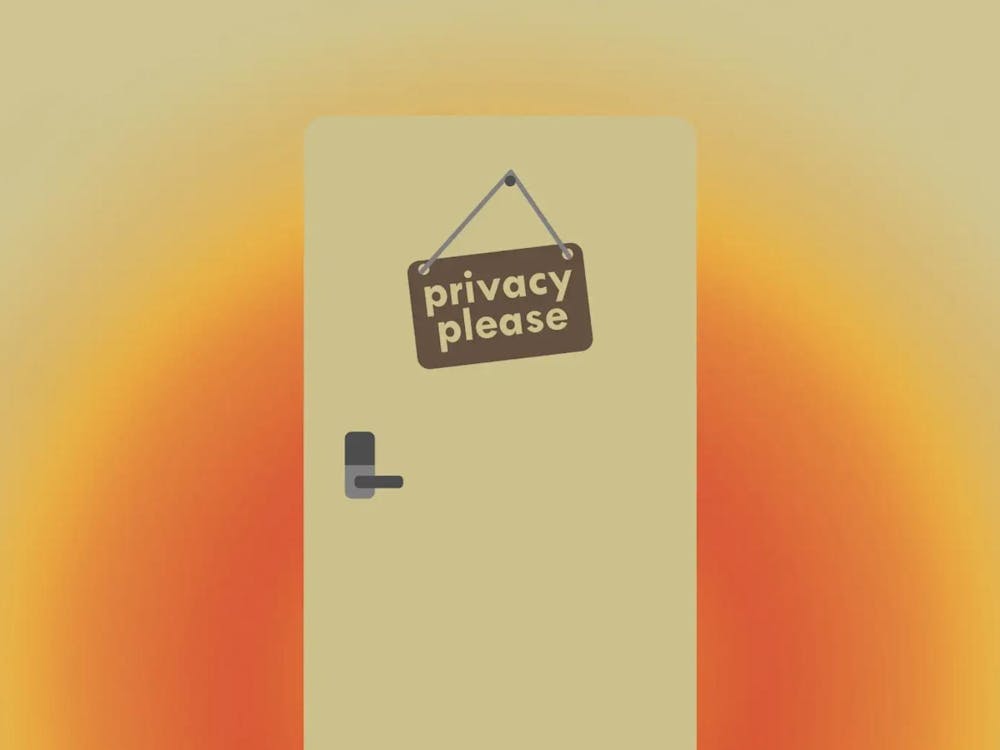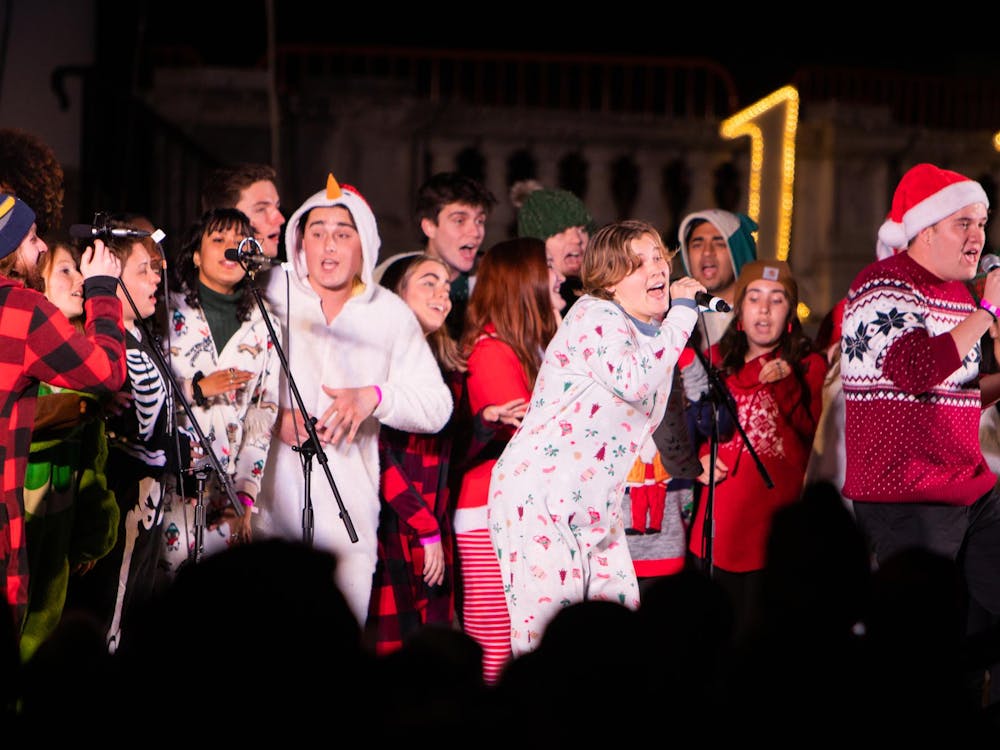According to University lore, it all started November 12, 1840 when Prof. John Davis was fatally shot by a rioting student in front of his Pavilion X home. As he was dying, he refused to identify his assailant, insisting that an honorable man would come forward and a dishonorable man had no place at the University. As the story goes, Davis' successor, Henry St. George Tucker, started the University honor system in 1842 to remember the slain professor.
Although it has changed with time, the honor system remains fundamentally the very same code that prompted a University student to search for the nighttime community service officer at the Charlottesville-Albemarle airport this past February to pay a $20 parking fee. Since it was after hours, she could easily have left without paying; no one would have known. But she insisted she was obliged by the University honor code to pay her bill.
How far will students go to uphold the honor code? For many, the honor code is much more than a piece of paper that gets a cursory signature along with a housing contract and meal plan. For alumni, faculty and students alike, the honor system is a way of life and extreme measures have been taken to avoid violating it.
Although the honor code's oath of no lying, cheating or stealing technically is binding only at the University, in the Charlottesville area or when one represents oneself as a University student, many students extend it to many different facets of their lives.
Larry J. Sabato, government and foreign affairs professor, remembers running into a University student at a Pittsburgh airport a few years ago. The student was in the process of telling a U.S. Air representative that he actually had been undercharged for the price of his airplane ticket.
Sabato said the representative was shocked at the student's honesty, saying, "This is a first."
But Sabato maintains this is all part of being a University student.
"This is what the essence of the honor system is all about," he said.
In 1948, when Mincer's opened on the Corner, former University Historian Raymond C. Bice Jr. said there was a punch bowl filled with $5 bills resting on the store's counter. Students in need of cash could take what they needed from the punch bowl and leave an IOU in its place. Bice said he asked the owner, Robert Mincer if this would be a loss to him and Mincer replied "No indeed." Students often returned slightly more than they had borrowed, he said. (see related story below.)
Even though the Mincer's punch bowl no longer exists, Honor Committee Chairman, Thomas Hall believes that the "community of trust" is still alive and well.
Hall said he enjoys the privilege of taking un-proctored exams while lounging on the Lawn or even in one of the University's gardens.
Mary Baylor, a 1975 graduate of the Nursing School, said that in her two years living in University housing, no one ever locked their doors, even when going to class or at night.
Baylor said although the 1970s were known as a time of experimentation, the one thing she and her friends did not try was breaking the honor code.
Baylor remembered how she and some friends tried to hang a banner off the Rotunda before a home football game during her first year. They thought it would be easier to hang if they could get inside the Rotunda, but because the Rotunda was being restored at the time, the doors were locked, so Baylor randomly tried her Maupin dorm key, which strangely opened the Rotunda door. Although she said they did not go in, the prospect of there being a "master key" to the University remained a joke for years and was a symbol to Baylor of how much the University trusted its students.
The University community has undergone continuous changes during the past 50 years along with the honor system, but according to Bice, "In my 50 years here, students have always taken it quite seriously."
He said when he came to Charlottesville, it was a community where "everyone knew everyone else," which provided a basis of trust for the honor system to work. Today, however, one cannot always tell who is a student in the community, and therefore who is bound to the University honor code.
Trust in the students by the Charlottesville community was clearly evident in the 1940s and 1950s when there were many young married students attending the University. Bice said that there was a Cash Food grocery store located on University Drive that would allow students in need of money and groceries to charge their purchases, knowing that because of the honor system, the students eventually would pay.
The honor code is a distinguishing characteristic of the University, not only by the Charlottesville community, but in other areas of the country as well.
Bice said when he was director of admissions in 1954, he took a trip to New York City, picking up some music for the music department at Shermer's, a New York publisher, while he was there.
He went to a nearby bank to cash a check for the $72 that was owed. He said he was unsure of whether the bank would allow him to cash a check, but upon realizing that he was from the University, the bank manager told the teller, "Cash anything up to $5,000 - He's from the University of Virginia."
Former Dean of Students Robert T. Canevari shared a similar story.
Canevari remembers standing in line behind two students at the People's drugstore on Barrack's Road 15 years ago. The cashier easily accepted the students' checks with only student identification. But even though Canevari identified himself as the faculty member responsible for students who write bad checks, the cashier insisted that he show two forms of identification, since he was not a student.
From his time at the University, as a student and administrator, Canevari said students lived in fear of the honor system, but that the "living in fear comes around to living in respect of the system and it becomes a way of life."
Sabato, sharing experiences from numerous travels to other colleges and universities, said "While there may be some dishonesty here, it is far, far less at Virginia than anywhere else."
What about the honor system makes students go to such lengths and earns it such a widespread reputation? University President John Casteen III said simply: "The students own it."
The University's student-run honor system evokes pride in it's students, alumni, faculty and community. As Baylor put it, "Once you have lived through that honor code, it changes you for life."




